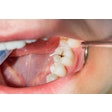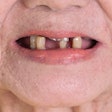Medical costs are lower for people with diabetes who receive treatment for periodontal disease, according to a study presented today at the American Association for Dental Research annual meeting by Marjorie Jeffcoat, DMD, professor and dean emeritus of the University of Pennsylvania School of Dental Medicine.
The longitudinal study, conducted in collaboration with United Concordia Dental and Highmark, compared medical costs for diabetes patients with periodontal disease who received periodontal treatment versus periodontally untreated controls over a three year period. The researchers considered data from nearly 1.7 million individuals with United Concordia dental and Highmark medical coverage.
The periodontal treatment group was treated in the first year and maintained thereafter. The control group had received incomplete periodontal therapy prior to baseline and did not receive regular maintenance during the study.
"There have been emerging links between oral infections and systemic diseases, such as diabetes, which is increasingly prevalent in our population," Dr. Jeffcoat said in a press release. "My research team and I had looked at other datasets and we knew that healthcare costs could be reduced, but we wanted to look at the hospitalizations and see how those could be reduced," she continued.
"This study provided direct insight as to how lower hospitalizations could be achieved through periodontal therapy, and we will further this study by analyzing other chronic diseases and conditions, such as heart attacks, strokes, and pregnancy with preterm birth."
According to the University of Pennsylvania study, periodontal treatment was associated with a significant decrease in hospital admissions, physician visits, and overall cost of medical care in people with diabetes.
"The study showed that periodontal treatment and ongoing maintenance is associated with a significant decrease in the cost of medical care for people with diabetes in the amount of $1,800 per year," said James Bramson, DDS, chief dental officer for United Concordia.
The findings also showed that hospitalizations decreased by 33% and physician visits by 13% across the entire study population of people with diabetes when periodontal disease is treated and managed afterward.
More than 25.8 million adults and children were living with diabetes in 2011 -- a number that has more than doubled since 1999, according to the Centers for Disease Control and Prevention.
As a result of the study's findings, United Concordia will offer UCWellness, a disease-specific program that provides 100% coverage for maintenance following periodontal treatment, certain surgical procedures that treat periodontal disease, and removal of plaque and tartar in patients with periodontal disease.



















